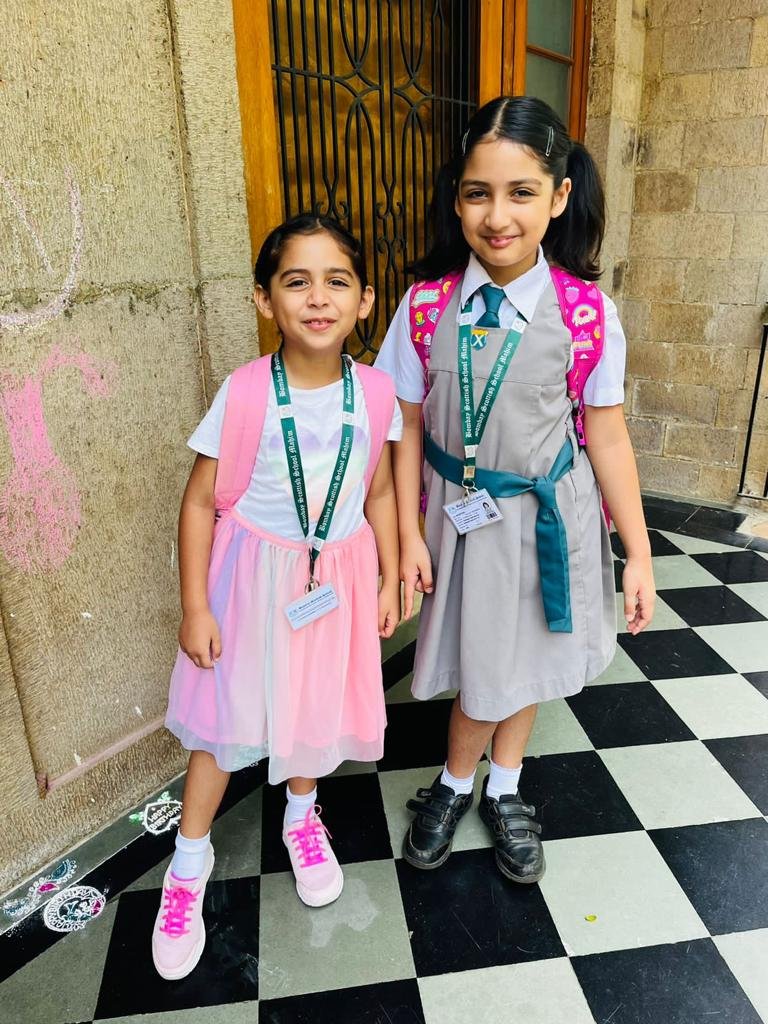In this new monthly column Mazda explores the relationship he has with his daughters (and everyone else).

“What would you like to be when you grow up?” I asked my daughters the quintessential question that all parents ask their children eventually at some point. My daughters were on the back seat of our car as we drove in the chimeric traffic of Mumbai to hopefully someplace nice. My elder daughter, Meher, is a little more than 8 years old, and my younger daughter, Khursheed, is a little less than 7. Just like in every other family where children are brought up by the same parents in the same environment, they too are poles apart.
“I wanna become a make-up artist… for dead people,” Meher, who spends a large portion of her day in front of the mirror, said unflinchingly. I screeched on the breaks but not from her answer; that’s how one spends Sunday evenings if going towards Bandra. “Why should people who have died not look pretty?” she wondered aloud. “Plus, unlike with alive people, I can do whatever make-up I think looks good and they won’t fuss!” she made her point. “Alive people have too many issues,” she concluded rightfully amidst all the unnecessary honking that people around us were indulging in.
“Maybe we should get you a vacation internship at John Pinto,” I proposed, “and instead of going for summer camp or learning how to swim, you could learn how to make dead people look good.” “Pinto!” she exclaimed, giggling at the name. “They take such good care of people that some of them look better dead than when they were alive,” I joked. “When someone dies, they clean them up, put make-up, dress them up in a suit or saree, and put them in a fancy coffin where they can be buried looking fresh and happy,” I said smilingly, as I swerved to miss hitting an erratic two-wheeler. “Careful, Dadda, don’t kill him – I don’t have my make-up kit with me!” she joked.
“You could also learn the art of embalming,” added my wife sitting next to me, who is pursuing her hypothetical master’s in ancient Egyptian techniques. “That’s the real make-up!” “What the heck is that?” Meher asked. “When someone dies, the body is preserved by injecting certain chemicals in it to dry it up and make it look fresh for many years, so there’s not much decay. It’s a very tough process to master,” she tried to explain simply. “It’s also called mummification,” I interjected. “I wonder why,” Meher mused. “It’s because all daddies want their children’s mummies to look fresh even after many years!” I added, and promptly got a slap on my thigh from my wife. I did later find out that ‘mummification’ comes from the Arabic word mummiya, a substance that was first used in the preservation process.
“I wanna become a teacher,” said my younger one, looking out of the window as she loves to do every time we go for a drive. “Because all the teachers in my school are really kind,” she went on to answer without even being asked why. “Today in English, we learnt prep… something (her six-year-old self was trying to figure out how to say ‘prepositions’) and teacher made us play a game to learn it simply.” “Give me an example,” I said. “Like miss asked us to put our bags on the table… so ‘on’ becomes the prepopittin or whatever it’s called, she said, smilingly hushing away her struggle. “Then she asked to remove our lunch box from the bag and eat whatever was in it… so ‘in’ is the prepsitition,” she continued, shaking her head and shaking away her inability to pronounce it. “Okay cool, let’s play a game. I’ll make a sentence and you fill in the blanks when I say dash with the precipitation or whatever that word is,” I levelled up. I haven’t seen kids this excited in Mumbai traffic before.
“Tina sat dash Tom,” was the first thing that came to my mind, and they started giggling out loud. I wondered why and only after a few seconds did I realize that their single-digit minds were naughtier than my double-digit experience. “Okay, let me give you a clue: it’s not ‘in’ and it’s not ‘on’!” I announced, suddenly wiping the smiles off their faces. They didn’t have an answer for a few seconds until Khursheed raised her hand on the back seat and said ‘behind’ as though she was still in class. “Thank God, or else, I was going to make a call to your teacher,” I said, giving them a fake stare. “The answer could have even been across or near or besides,” I went on, wondering to myself if these were actually prepositions. The beauty of having school-going children in the first and second standards makes you realize how little you know. But I take solace from the fact that there is no point in knowing so little.
We finally reached our destination. The conversations I have with my kids makes traffic seem interesting and that much more meaningful. I love talking to children, mine and everyone else’s. They are unfathomably wise and I believe we have a lot to learn from them. Their minds are not constrained by the realm of reality and each of them is a fulcrum of wonder. They silence your rationality and make you believe in magic. It’s a pity that they have to grow up. But until they do, stay tuned to this column for more.





